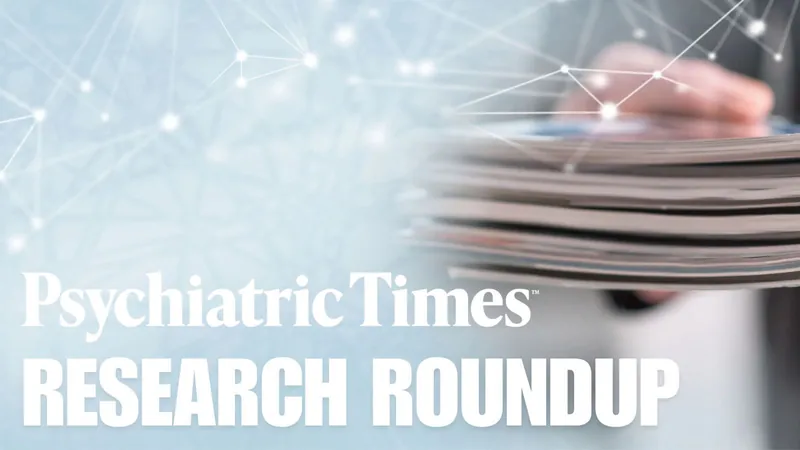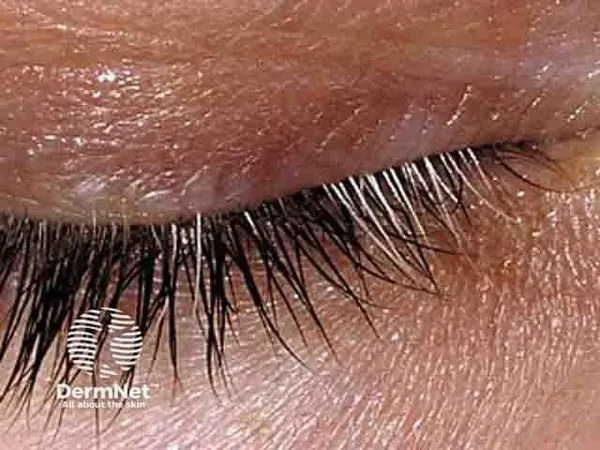
Groundbreaking Innovations in Major Depressive Disorder Treatment: What You Need to Know
2025-01-10
Author: Wei Ling
In a recent roundup of research on Major Depressive Disorder (MDD), pivotal studies highlight advancements in understanding and treating this pervasive mental health condition. Here’s what you should know about these developments and what they could mean for patients and healthcare providers.
Psychological Interventions Show Promise Against MDD Onset
A 2024 study has revealed that adults at risk for MDD, particularly those experiencing subthreshold depression symptoms, may significantly benefit from psychological interventions. The rigorous systematic review analyzed data from over 7,200 participants, focusing on how these methods can stave off the onset of MDD.
Remarkably, it was found that psychological interventions—primarily rooted in cognitive behavioral therapy (CBT)—could reduce the incidence of MDD by 43% right after treatment and by 42% within six months. This highlights an effective strategy in early intervention for those who haven’t previously undergone psychotherapy. Additionally, the study hints at exciting avenues for technology-driven approaches, such as conferencing tools, which appear to hold untapped potential.
Exercise: A Vital Component in Battling Depression
Research continues to support the mental health benefits of physical activity. A systematic review and meta-analysis conducted with over 14,000 participants demonstrated that various exercise modalities—including walking, jogging, and yoga—could effectively alleviate depressive symptoms in individuals with MDD. Intriguingly, the study revealed that different demographics responded variably to exercise types: while young adults thrived on strength training, men showed greater improvement with yoga or qigong, and older adults benefited more from yoga.
This finding underscores the importance of personalized exercise regimens in the treatment of MDD, paving the way for health systems to incorporate exercise as a standard treatment alongside conventional methods, like cognitive behavioral therapy (CBT) and SSRIs.
Innovative Neuromodulation Techniques for Treatment-Resistant Depression
With nearly half of patients suffering from MDD classified as treatment-resistant depression (TRD), new advancements are crucial. A comprehensive review of 69 randomized controlled trials has pinpointed six treatments that significantly outperform placebos: electroconvulsive therapy (ECT), ketamine, theta-burst stimulation (TBS), repetitive transcranial magnetic stimulation (rTMS), minocycline, and aripiprazole.
These neuromodulatory treatments, while still emerging, exhibit strong efficacy and tolerability, particularly ECT, which has shown the best odds for effectiveness. This groundbreaking study is pivotal as it bridges traditional medications with novel therapies, suggesting a new hope for those struggling with TRD.
The authors emphasized the importance of continued research in this field, advocating for broader availability of these treatments as an essential element of holistic care for those battling severe depression.
In conclusion, the latest findings signify a leap forward in the management of Major Depressive Disorder, revealing the potential of psychological, physical, and novel treatment approaches. If you or someone you know is affected by depression, these insights could prompt a discussion with healthcare providers about the most current and effective treatment options available. Stay informed, as these emerging strategies could change lives!






 Brasil (PT)
Brasil (PT)
 Canada (EN)
Canada (EN)
 Chile (ES)
Chile (ES)
 Česko (CS)
Česko (CS)
 대한민국 (KO)
대한민국 (KO)
 España (ES)
España (ES)
 France (FR)
France (FR)
 Hong Kong (EN)
Hong Kong (EN)
 Italia (IT)
Italia (IT)
 日本 (JA)
日本 (JA)
 Magyarország (HU)
Magyarország (HU)
 Norge (NO)
Norge (NO)
 Polska (PL)
Polska (PL)
 Schweiz (DE)
Schweiz (DE)
 Singapore (EN)
Singapore (EN)
 Sverige (SV)
Sverige (SV)
 Suomi (FI)
Suomi (FI)
 Türkiye (TR)
Türkiye (TR)
 الإمارات العربية المتحدة (AR)
الإمارات العربية المتحدة (AR)